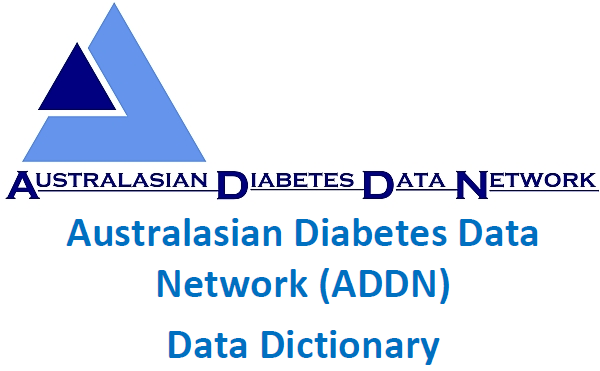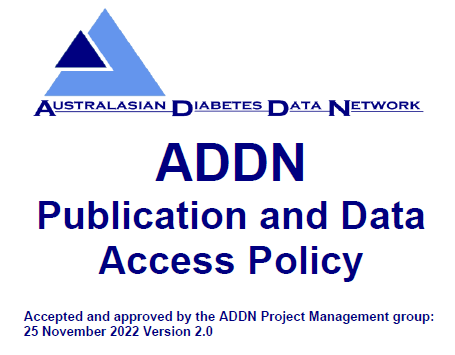REGISTRY AND RESEARCH
The ADDN Registry
International registries have provided valuable insight into clinical care and outcomes of people with type 1 diabetes (T1D). In Australia, separate state-based registries have existed for over 20 years. Since 1999, the Australian National Diabetes Register (NDR) which sources data from state-based registries has reported the incidence and prevalence of diabetes to the Australian Institute of Health and Welfare.
The ADDN Registry currently holds longitudinal de-identified data and was established to provide a national data source to foster collaborative research and improve clinical care. With the inclusion of both paediatric and adult diabetes centres, it is now possible for the ADDN Registry to report on outcomes for people with T1D from childhood across the lifespan.
Participating centres upload data to ADDN twice a year, in February and August. Comprehensive data validation rules and error reports have been implemented as part of the registry to ensure data quality. More information on the methodology used within ADDN can be found in the publication linked here. A copy of the current ADDN Data Dictionary (Version 4.5) can be downloaded by clicking the image below, including a complete list of the data collected within the ADDN registry. An updated Data Dictionary (Version 4.6) will be circulated soon.
Participant INCLUSION CRITERIA
Children and adolescents (≤18 years): diagnosis of either T1D, type 2 diabetes (T2D), Cystic Fibrosis Related Diabetes (CFRD), Monogenic diabetes (such as Maturity-Onset Diabetes of the Young (MODY) and Neonatal diabetes), or other forms of diabetes.
Adults (>18 years): all adults diagnosed with T1D.
UPCOMING DATA LOAD (FEBRUARY 2023)
Please note the following dates for our next data load in the image below.
Any data-related queries or issues can be discussed with the ADDN program team at ADDNinfo@unsw.edu.au.
Research PROPOSALS (using addn data)
We encourage ADDN study group members and others (including early career researchers) to submit project proposals. If you would like to enquire about using ADDN data, please submit your enquiry using the form on our contact page.
Please consider that the language used in your proposal may directly impact the thoughts, feelings, and experiences of people with diabetes. The Diabetes Australia language position statement provides a comprehensive guide on the use of person-centred language related to diabetes that is both respectful and inclusive.
Our recently updated Publication and Data Access Policy (Version 2) explains the processes involved in the collection, access, and publication of ADDN data, and will be circulated in the coming weeks. It can also be downloaded by clicking the image below.
A complete list of existing publications from ADDN study group members can be found on our publications page.




